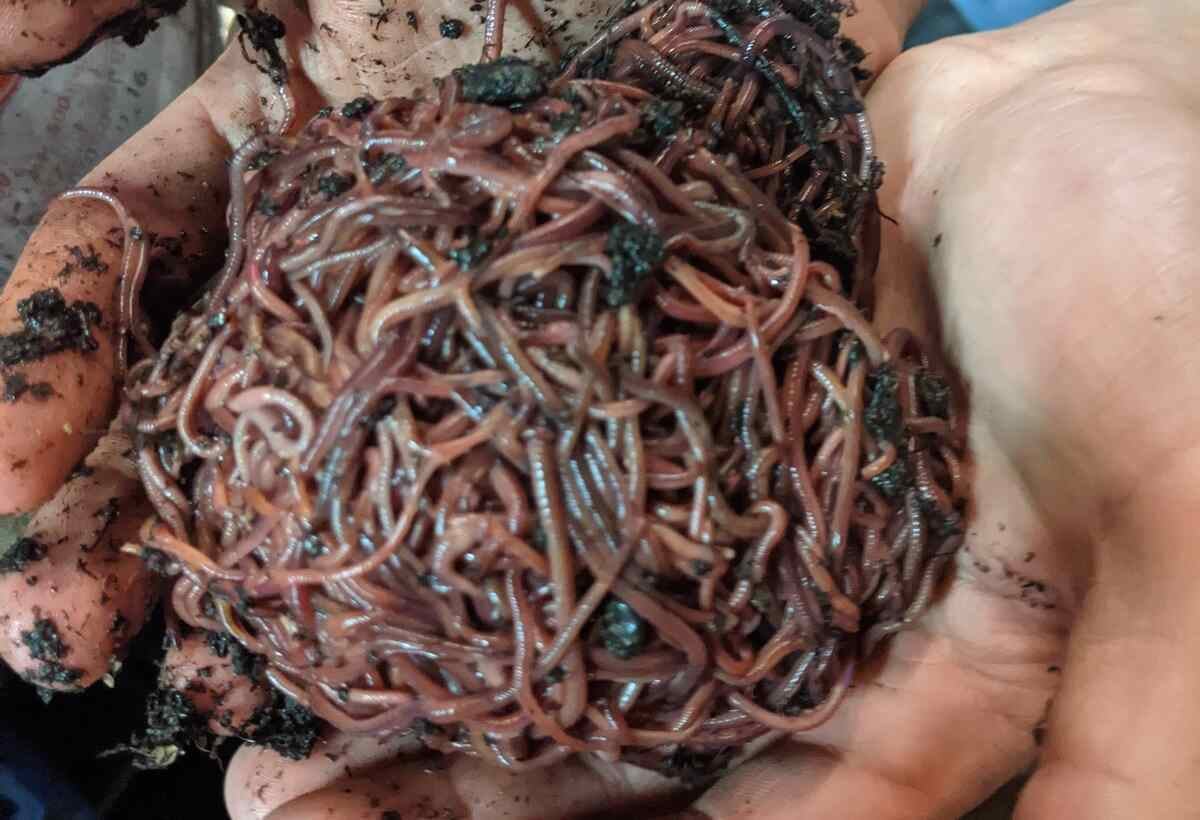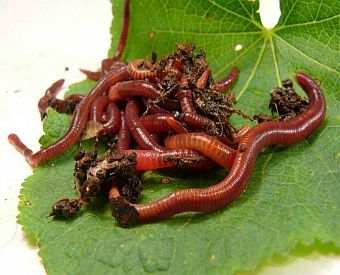Buy Red Wiggler Worms - Perfect for Composting and Horticulture
Buy Red Wiggler Worms - Perfect for Composting and Horticulture
Blog Article
Red Wiggler Worms Demystified: Opening the Tricks of Vermiculture for Greener Living and Nutrient-Rich Soil
In the world of sustainable practices for improving dirt high quality and advertising eco-conscious living, red wiggler worms play a critical yet usually ignored duty. These humble animals have the impressive capacity to transform organic waste into nutrient-rich castings that function as a powerful all-natural fertilizer. By diving into the globe of vermiculture, one can discover a myriad of benefits that prolong much beyond conventional composting approaches. Comprehending the ins and outs of caring for these worms, maximizing their atmosphere, and utilizing their castings can bring about a greener way of life and much healthier dirt for plants to prosper.
The Function of Red Wiggler Worms
Red Wiggler worms play a vital function in composting systems by successfully breaking down organic matter right into nutrient-rich spreadings. These voracious eaters eat a variety of organic products, such as kitchen area scraps, backyard waste, and paper products. As they feed, the worms' digestive processes damage down the raw material right into a fine, dark, and nutrient-dense material referred to as worm spreadings or vermicompost.
The spreadings generated by Red Wiggler worms are very valuable for dirt health and plant growth. They are rich in necessary nutrients like potassium, phosphorus, and nitrogen, which are essential for supporting healthy plant development. Additionally, worm castings include helpful microorganisms and enzymes that assist improve soil structure, increase water retention, and improve nutrient uptake by plants.
Benefits of Vermicomposting

Moreover, vermicompost, the nutrient-rich final result of vermicomposting, functions as an excellent natural plant food and dirt conditioner. It enhances soil structure, improves dirt aeration, and boosts dirt wetness retention. These buildings add to much healthier plants with more powerful origin systems and far better resistance to insects and diseases. Vermicompost likewise enriches the dirt with necessary nutrients like phosphorus, potassium, and nitrogen, advertising plant growth and general soil fertility.
Furthermore, vermicomposting assistances lasting horticulture practices by offering a chemical-free and all-natural choice to synthetic fertilizers. Red Wiggler Worms. This eco-friendly strategy not just improves the dirt but also helps decrease reliance on unsafe chemicals, promoting a greener and more sustainable way of gardening
Establishing a Worm Bin
When developing a worm bin for their website vermicomposting, proper arrangement is essential to guarantee the success of the composting process. The initial step in setting up a worm container is choosing a suitable container.
After including the bed linen, introduce the red wiggler worms to the container. The worms should after that be offered with food scraps such as fruit and vegetable peels, coffee grounds, and eggshells.
Consistently monitor the wetness levels and temperature level in the worm bin to make sure ideal conditions for the worms. With proper arrangement and maintenance, the worm bin will efficiently convert organic waste right into nutrient-rich garden compost for your plants and garden.
Harvesting Worm Spreadings
To successfully accumulate nutrient-rich worm spreadings from your vermicomposting system, a systematic harvesting technique is vital. When it comes time to collect the worm spreadings, there are a couple of key steps to follow to make sure an effective procedure.

Troubleshooting Common Issues
Identifying and resolving typical obstacles that might arise throughout the vermicomposting procedure is critical for preserving a effective and healthy worm container. Adding excess food scraps can lead to a buildup of dampness and acidity in the worm container, possibly hurting the worms. An additional issue is undesirable smells rising from the worm bin.
Furthermore, if the worm population is declining or the worms show up harmful, it can be click now as a result of ecological stress factors such as extreme temperatures or pH levels. Keeping an eye on these elements and making essential adjustments is crucial for the well-being of the worms. By fixing these common concerns promptly, vermicomposters can make sure a successful and smooth vermicomposting Home Page process while preserving a flourishing worm populace.

Conclusion
In final thought, red wiggler worms play an important function in vermiculture by breaking down natural matter into nutrient-rich dirt. Setting up a worm container is essential for effective vermiculture, and gathering worm castings supplies useful compost for gardening.
As they feed, the worms' digestion procedures damage down the natural matter right into a fine, dark, and nutrient-dense material understood as worm spreadings or vermicompost.
The spreadings generated by Red Wiggler worms are very valuable for dirt wellness and plant development. Adding excess food scraps can lead to a buildup of dampness and acidity in the worm bin, potentially harming the worms.Furthermore, if the worm population is decreasing or the worms appear undesirable, it could be due to environmental stress factors such as severe temperatures or pH degrees. Setting up a worm container is necessary for successful vermiculture, and harvesting worm spreadings provides useful compost for horticulture.
Report this page